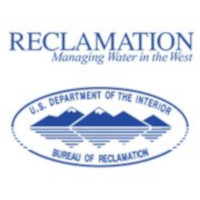Sacramento, CA…The Bureau of Reclamation announced the initial 2019 water supply allocation for Central Valley Project water service contractors. This allocation is based on a conservative estimate of the amount of water that will be available for delivery to CVP water users and reflects current reservoir storages, precipitation and snowpack in the Central Valley and Sierra Nevada.

California experienced a dry summer and fall in 2018; however, precipitation so far this year has been well above average. The California Department of Water Resources (DWR) reports that as of February 15, the statewide average snow water equivalent in the Sierra Nevada snowpack was 141 percent of the historical average, and overall precipitation is currently approximately 121 percent of the historical average for the northern Central Valley.
“Though we’ve had a great start to 2019, our experience as the operator of this complex and important infrastructure dictates we act conservatively at this time of year,” said Ernest Conant, Reclamation’s Mid-Pacific Region Director. “In particular, we are closely monitoring the current and projected storage at Shasta Lake, which is the largest reservoir in the CVP.”
With a capacity of about 4.5 million acre-feet, Shasta Lake generally represents the majority of the water storage for the CVP. The water stored in Shasta Lake is used for many purposes, including supply for many of the water contractors of the CVP both north and south of the Delta, as well as ensuring that adequate temperatures can be maintained in the Sacramento River downstream of the dam throughout the summer and fall for endangered winter-run Chinook salmon. Recent storms have brought storage in the reservoir back up to just above the historic average. However, runoff forecasts still predict that overall storage this year might be limited if the typical spring precipitation does not materialize.
“Reclamation’s initial allocations this year reflect the rain and snow we’ve had to date, balanced with the need to exercise reasonable caution should the remainder of the winter turn dry,” Conant said. “We recognize the importance of providing meaningful allocations early in the year for the planning needs of our contractors and must also ensure we can meet these commitments should conditions turn dry or other contingencies arise.”
Based on the conditions described above, Reclamation provides an initial allocation as described below.
North-of-Delta Contractors (Including American River and In-Delta Contractors)
Agricultural water service contractors North-of-Delta are allocated 70 percent of their contract supply.
Pursuant to Reclamation’s M&I water shortage guidelines, M&I water service contractors North-of-Delta (including American River and In-Delta Contractors) are allocated 95 percent of their historic use.
Eastside Water Service Contractors
Eastside water service contractors (Central San Joaquin Water Conservation District and Stockton East Water District) will receive 100 percent of their contract total.
South-of-Delta Contractors
Agricultural water service contractors South-of-Delta are allocated 35 percent of their contract supply.
M&I water service contractors South-of-Delta are allocated the greater of 75 percent of their historic use or public health and safety needs.
Friant Division Contractors
Friant Division contractors’ water supply develops in the Upper San Joaquin River Basin Watershed and is delivered from Millerton Lake through Friant Dam to the Madera Canal and Friant-Kern Canal. The first 800,000 acre-feet of available water supply is considered Class 1; and Class 2 is considered the next amount of available water supply up to 1.4 million acre-feet. Given the current hydrologic conditions, we have determined that a block of 150,000 acre-feet needs to be evacuated from Millerton Lake in March in order to avoid making flood releases later in the spring. As such the initial Friant Division water supply allocation is being based on “uncontrolled season” conditions. During this uncontrolled season period the Class 1 allocation is 100 percent, and any portions of the uncontrolled season supply not picked up by Class 1 contractors are accordingly made available to contractors with Class 2 designations in their contract. The uncontrolled season may be shortened or extended, however, we will coordinate our operations with the Friant contractors on a weekly basis throughout this period, and will update the Friant Division allocations following the conclusion of uncontrolled season.
For the San Joaquin River Restoration Program, Reclamation is currently forecasting a “Normal-Wet” water year type, providing for about 322,000 acre-feet to be used for Restoration Program purposes.
On February 15, Reclamation notified the Sacramento River Settlement Contractors, San Joaquin River Exchange Contractors, San Joaquin Settlement Contractors, and Refuge Contractors that the forecasted inflow to Shasta Lake is currently greater than the amount that would cause this to be a “Shasta Critical” year as that term is defined in their contracts.
As the water year progresses, changes in hydrology and opportunities to deliver additional water will influence future allocations. Water supply updates will be made as appropriate and posted at http://www.usbr.gov/mp/cvp-water/index.html.
For additional information, please contact the Public Affairs Office at 916-978-5100 (TTY 800-877-8339) or email mppublicaffairs@usbr.gov.
# # #


